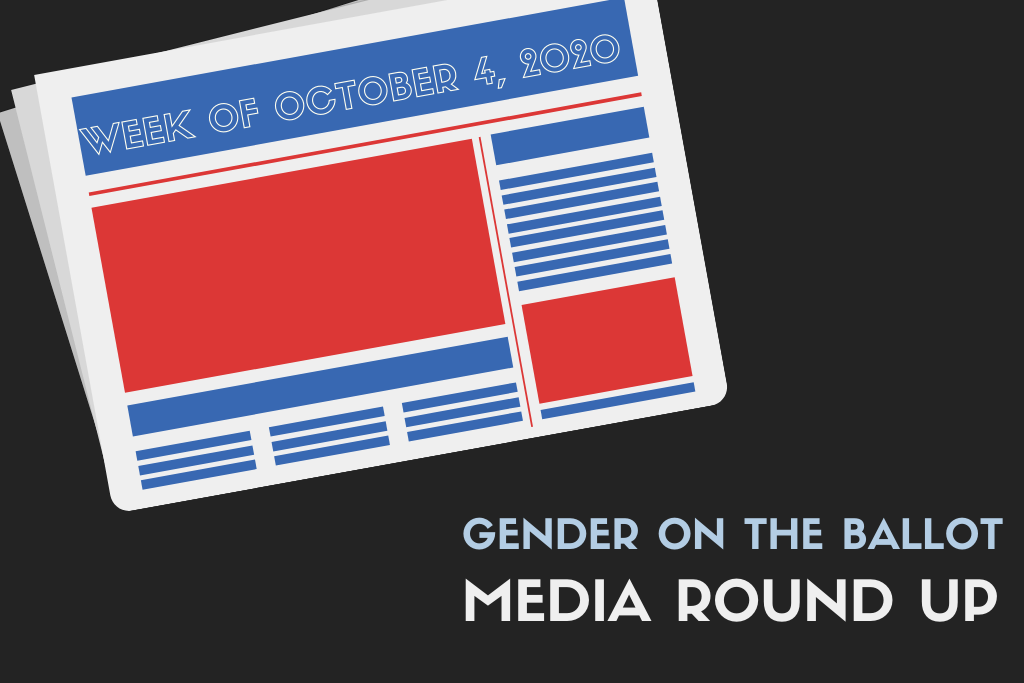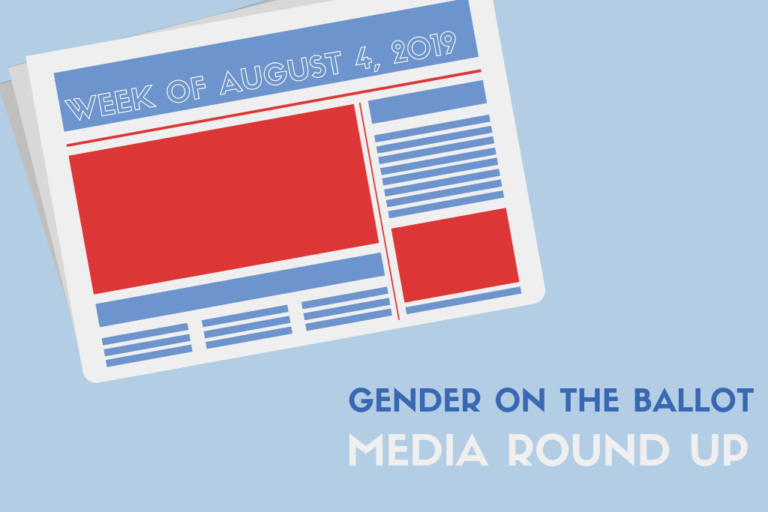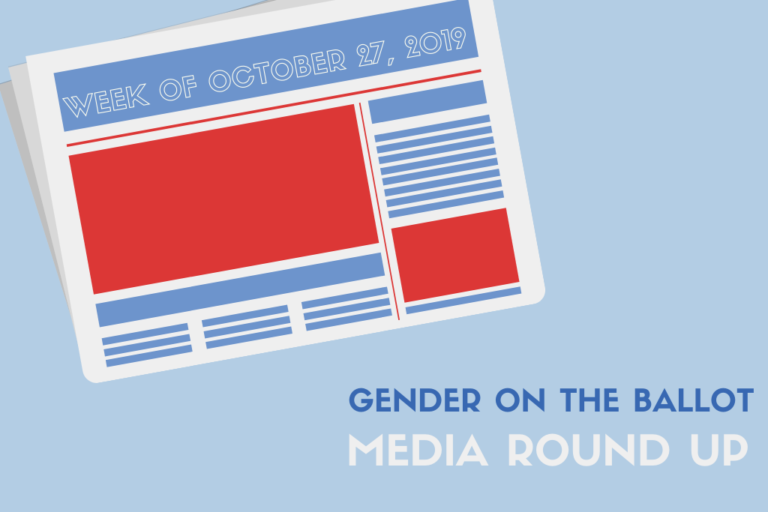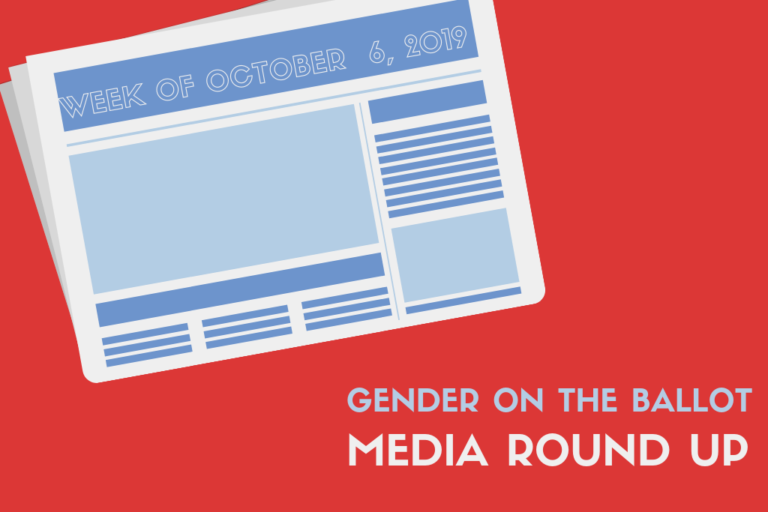Happy Friday! Welcome to our Media Round Up. Each week we’re collecting and sharing…
Media Round Up: Week of October 4th

Happy Friday! Welcome to our Media Round Up. Each week we’re collecting and sharing our favorite gender + politics stories. Here’s what caught our eye this week:
Representation Roundup: “Words Clinton Could Never Utter, Biden’s Campaign Will Use on T-Shirts”
Cynthia Richie Terrell, Ms. Magazine
Cynthia Richie Terrell discusses the acrimony of the first 2020 Presidential debate and the quadruple standard that women have faced on the debate stage. “When Trump called Clinton a ‘nasty’ woman while she talked about Social Security during the third presidential debate in October 2016, she ignored him, finishing her answer without acknowledging the insult. Clinton knew the unspoken rules for women, and while she tried her best to follow them, she was often caught between the expectations of her gender and the qualities people tend to associate with leadership. Words that Clinton could never utter, Biden’s campaign will now use on T-shirts.”
You can read the full article here.
Kamala Harris’s Doubleheader: A Debate and Hearings With Sky-High Stakes
Sydney Ember and Lisa Lerer, The New York Times
“Likeability” is much harder for female candidates to achieve than male candidates. In this article, Sydney Ember and Lisa Lerer delve into this concept and the incredibly high stakes Senator Kamala Harris faces in this year’s election. “Research has found that it is much harder for female candidates to be rated as ’likable’ than men — and that they are disproportionately punished for traits voters accept in male politicians, including ambition and aggression.”
You can read the full article here.
You Won’t Hear Kamala Harris Saying “Shut Up, Man” In The VP Debate
Molly Hensley-Clancy and Ruby Cramer, Buzzfeed
Presidential candidate Joe Biden uttered the words “Shut up man,” in the first 2020 Presidential debate. Molly Hensley-Clancy and Ruby Cramer discuss how VP nominee Kamala Harris will take the opposite approach for the VP debate. “As they prep her in Salt Lake City, Harris’s team has shaped a strategy in part around the reality that she is likely to be perceived differently than the white male candidate standing opposite her. Aides have reviewed studies — including those by the Barbara Lee Family Foundation — about how women candidates pay a high price for negativity and can be harshly punished by voters over issues of honesty, a Biden aide said.”
You can read the full article here.
Amy Coney Barrett and the Triumph of Phyllis Schlafly
Sarah Jones, New York Intelligencer
This article touches upon current anti-feminist rhetoric and relates it to the legacy of Phyllis Schlafly and the nomination of Amy Coney Barrett. “It’s an old trick. Women helped invent it. Barrett is the beneficiary of decades of right-wing activism, much of it carried out by women who not only rejected feminism but sought actively to bring it down low. In her religious conviction and her status as an accomplished but anti-feminist woman, the judge recalls Phyllis Schlafly, who died four years ago this month. Barrett was still a toddler when Schlafly and her militant housewives vanquished the Equal Rights Amendment. But to the left, Barrett is a familiar specter: a traitor to her sex.”
You can read the full article here.
Kamala Harris’s critics fell into the ‘Is she likable?’ trap
Amber Phillips, Washington Post
Amber Phillips discusses Wednesday’s Vice Presidential debate and the much higher standards of likeability women candidates are held to. “Be compassionate. Be strong but not tough. Be confident, but don’t take too much credit for your work. And above all, be likable, because otherwise voters won’t choose you. The rules for women in politics, as studied by the nonpartisan Barbara Lee Family Foundation, are head-spinning in their complexity, and they are rules that research shows men in politics don’t have to play by or even think about.”
You can read the full article here.
Five stories not enough? Sign-up for the Women & Politics Institute’s weekly newsletter, the WeLead Reader.







